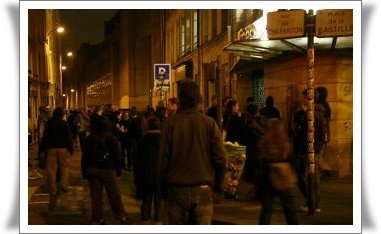Survival in the City
If a disaster suddenly strikes an urban area, survival in the city will be a horrendous and terrifying experience for those who are not prepared. Because urbanites are usually miles away from wilderness areas where water, food and shelter are available, they need to remain even more prepared for an apocalyptic event than people living in rural areas.

Rampant epidemics, large-scale terrorist attacks, detonation of a nuclear warhead, earthquakes and other catastrophes can severely debilitate the ability of cities to render assistance to its inhabitants. With no electricity or running water, looting gangs roaming the streets and hospitals overflowing with severely injured people, chaos would ensue and lawlessness would turn a once, fairly organized metropolitan area into a living hell on Earth.
Basics of Survival in the City
The old adage of "survival of the fittest" applies to any post-apocalyptic world, especially to individuals who have not prepared for an unexpected disaster. Living in an urban apartment, condominium or residential building should not stop someone from stocking up on supplies, and learning first aid techniques, as well as preparing a fully equipped bug-out bag and/or bug-out vehicle, and planning several escape routes in case the city becomes just too dangerous in which to remain.
Stocking Food
When living in the city, you should always have enough food supplies on hand that would last at least seven days or more if you have the room. Panicked city dwellers and unfortunately, looters, will quickly raid and deplete grocery stores of perishable items, such as fresh fruit, vegetables and dairy products.
Survival in the city means not leaving your home, so while having a freezer-full of frozen meat and vegetables might seem like a good idea, it might not be. After all, in any type of breakdown of society and the infrastructure, the power will go out. Therefore, the wise prepper would be better off having canned and dried, packaged food, as well as some lightweight freeze dried meals and a few MREs. Other items you can find in your grocery include: canned meats, dry cereal, nuts, powdered milk, protein bars, cracker sandwiches, granola bars and peanut butter.
Cooking Food
A camp stove that uses propane fuel will safely cook food and boil water outside your home. A barbecue grill is also viable but using it depends on how safe it is to be outside following a disaster. Never use a camp stove or grill inside your residence as they deplete oxygen stores and emit dangerous carbon monoxide.
Water
In addition to being desperate for food, people will be desperate for clean drinking water. Post-apocalyptic survival in the city means having immediate access to water for nutrition and cleaning purposes. Keep as many plastic gallon jugs of water as possible stocked in your residence, along with bleach and/or water purification tablets in the event you need to decontaminate water. Water can also be boiled for several minutes to remove microorganisms harmful to humans.
Energy
If it is summer and the electricity goes out due to a disaster, try to remain as cool as possible while staying inside your home by wetting towels and laying them around your neck. When the towels become warm, wave them around in the air before putting them back on your neck or bare legs. Use battery-operated fans only when the heat is extreme and if your neighborhood seems safe enough, open windows in the early morning or evening when the air is coolest, but do not leave windows unlocked during the night.
Alternatively, cold weather survival in the city tips involve staying warm when power is unavailable. Propane heaters provide an adequate and economical heating source for apartments and condominiums. Close off any rooms that are not necessary and seal doors to prevent heat from escaping the rooms that are used.
Cover wood floors with carpet remnant or old quilts. Place several emergency candles around to warm rooms but be mindful of safety measures. Allow as much sunlight as possible to enter rooms and close drapes once the sun sets to keep daytime heat from dissipating. Remember to dress in layers rather than just wearing one heavy sweater and one pair of pants.
Other items necessary to make survival in the city feasible following a disaster include guns and ammunition; medical supplies and first aid kits; hygiene products; paper towels and trash bags; flashlights, batteries and tools such as multi-purpose knives and folding shovels. Experts in urban survivalism also recommend learning basic self-defense techniques and always keeping yourself in good condition.
Probably the best advice is to keep your head down and avoid going out as much as possible. Something moving is easier to spot than prey that doesn’t move, and in a post-apocalyptic world, you could easily become prey to MZBs (mutant zombie bikers), criminals, looters and other dangerous hunters.





New! Comments
Have your say about what you just read! Leave me a comment in the box below.